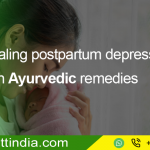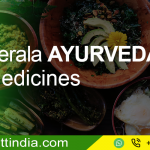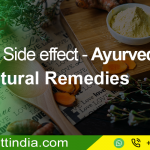In Ayurvedic context, the term ‘kushtaroga’ is mentioned frequently for discussing about skin diseases. ‘Kushtaroga’ is a Sanskrit term that means “skin disease” or “skin condition”. This term is not used for a specific disease or condition but is rather a common term for all skin problems in Ayurvedic medicine.
In the Ayurvedic text, Charaka Samhita, ancient Ayurvedic scholar Charaka particularly stressed on kushta roga with a complete chapter dedicated to kushta roga (skin conditions) and a term related to kushta roga is Kushnati Sarvam Vapu Iti Kushtam. The text also mentions the various causes, pathologies, symptoms, and types of skin conditions that come under kushta roga along with different management strategies and remedies for the various skin conditions
Besides Charaka, well renowned Ayurvedic scholars like Sushruta and Vagbhata has also discussed about kushta roga in their own Ayurvedic medical texts. The condition is called kushta because it damages/deforms the entire body. This term kushta roga depicts how seriously it can affect the body if not treated properly.
In kushta roga, all three doshas (Vata, Pitta, and Kapha) get vitiated. If doshas are out of balance, one may feel stressed or become sick. The goal of Ayurveda is to keep doshas balanced for optimal health. Kushta roga mainly involves tavacha (skin), rakta (blood), mamsa (muscles), and lasika (lymph or plasma). Clinically, one can say that there are two types of kushta roga namely ek kushta and kitibha kushta, which can be correlated with psoriasis of western medicine.
Causes Of Psoriasis According To Ayurveda
Charaka has listed a set of common causes which can be attributed to all 18 varieties of kushta roga which include the following:
According to Ayurveda, Virodhi anna paan sevana which is intake of wrong combinations of food
- Excess intake of oily/heavy-to-digest drinks.
- Suppressing excretory bodily urges (vomiting, defecating or urinating).
- Engaging in excess physical activity or excessive exposure to sunlight after heavy meals.
- Following improper protocols for fasting and eating.
- Using cold water (without rest) immediately after exposure to sunlight, physical exertion or exposure to stressful situations.
- Intake of food even if the previous meal is undigested.
- Improper administration of panchakarma therapies.
- Excessive intake of freshly harvested grains, yogurt, fish and other salty and sour foods.
- Excessive intake of black gram, radish, jaggery, milk, and sesame seeds.
- Engaging in sexual intercourse despite indigestion.
- Daytime sleeping.
- Committing sinful acts.
Pathogenesis of Psoriasis
Due to the above-mentioned causes, all three doshas get vitiated in psoriasis. These vitiated doshas, in turn, vitiate the skin, blood, muscles, lymph or plasma tissue.
These seven factors together produce kushta roga and these seven factors together are known as kushta dravya sangraha. Kushta roga is never caused by vitiation of single dosha or vitiation of only one of these seven pathogenic substances, all of them have to be vitiated for the causation of kushta roga. The pathogenesis of psoriasis is similar to that of other kushta roga.
Treatment
Topical solutions of Ayurvedic herbs aloe vera, black nightshade, Boswellia, or frankincense, garlic, guggul, jasmine flower paste and neem are effective to treat psoriasis.
Panchakarma therapy is effective for treating psoriasis if followed with commitment.
The Panchakarma treatments include:
- consuming medicated ghee
- purging and vomiting
- dripping medicated buttermilk on a person’s head
- covering the entire body with a paste of medicines and mud
- performing medicated enemas








